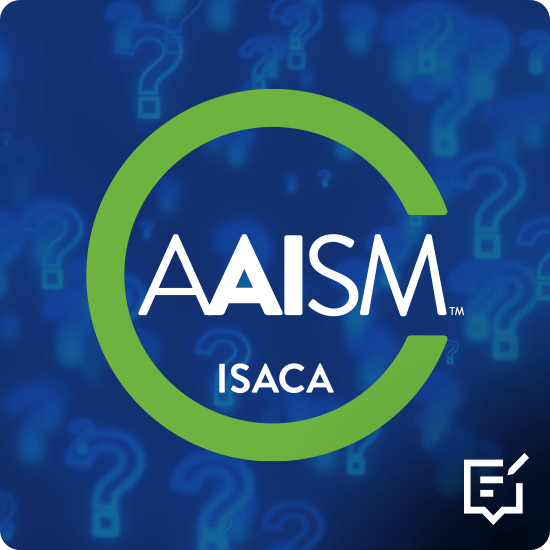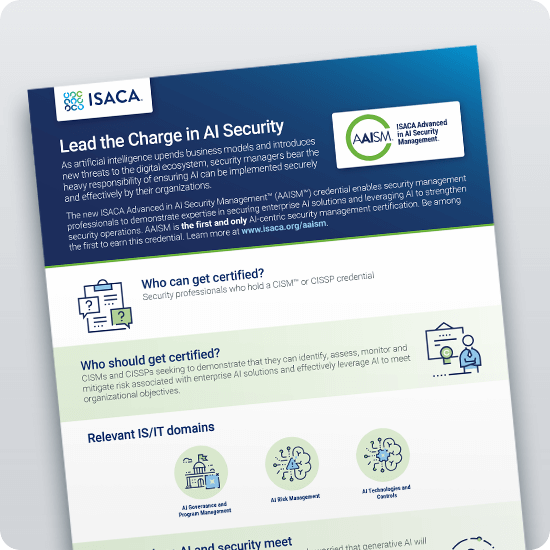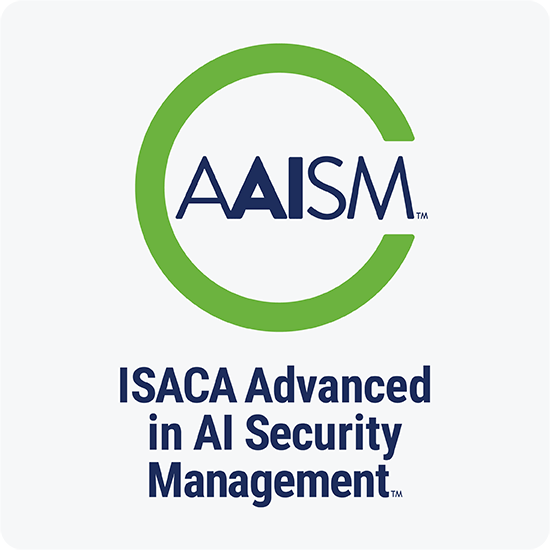



The technological landscape is evolving at an unprecedented pace, with Artificial Intelligence (AI) at the current forefront of innovation across every industry. As AI systems become increasingly sophisticated, with the evolution of agentic AI technologies and deeply integrated into critical operations, the need for pragmatic and robust security management is paramount.
With that, the recent debate among experienced cybersecurity professionals includes conversations about whether it is worthwhile to invest the time and money to attain another technical certification or if this can be demonstrated through on-the-job training (OJT) experience. While practical experience is invaluable, the unique and rapidly evolving nature of AI security risks suggests that a reliance on OJT alone would likely be a more reactive approach. A structured, research-based approach, validated by a professional credential, is becoming the new standard for effective and proactive AI security leadership. For seasoned information security professionals and leaders, this points to the need to upskill with specialized knowledge in securing these AI systems.
OJT is, by its nature, fragmented. An information security professional at a financial institution might gain deep expertise in securing an AI model used for fraud detection from an operational perspective. However, this experience may not prepare and expose them sufficiently for the challenges of securing a generative AI model for content creation, an AI-powered medical diagnostic tool, or a complex autonomous system. There are other considerations that need to be factored in for each use case that the professionals may not have considered. Even if they may learn how to respond to a prompt injection attack, they may lack a holistic understanding of AI governance, the ethical implications of algorithmic bias, or the long-term data privacy risks inherent in their system. In short, the knowledge acquired is often limited to the specific technologies and immediate security incidents an organization faces.
ISACA's 2025 AI Pulse Poll found that only 41% of organizations believe they are adequately addressing ethical concerns in AI deployment, such as data privacy, bias, and accountability. A reliance on OJT, which often bypasses these crucial, non-technical domains, leaves an organization vulnerable on multiple fronts.
In that regard, ISACA’s new Advanced in AI Security Management (AAISM) credential is not merely an additional certification; it is pragmatically designed to equip information security professionals with the advanced insights and practical competencies required to navigate the intricate security challenges inherent in AI development, deployment and governance. Attaining this credential represents a strong commitment and desire to upskill and demonstrate essential holistic understanding of AI governance, ethical and transparency implications of AI systems and future-proof your information security management career.
The Indispensable Nature of AI Security Management
The rapid adoption of AI, in particular generative AIs in the past few years, has arguably amplified the unique set of security vulnerabilities that traditional cybersecurity frameworks may not fully address. These encompass a broad spectrum, from adversarial attacks engineered to manipulate AI models to complex privacy concerns associated with datasets. The threats are multifaceted and subject to continuous evolution.
Consider the implications of a compromised AI-powered financial trading system, leading to significant market manipulation, or an exploited autonomous vehicle's AI, resulting in severe safety risks. These are no longer hypothetical scenarios; they represent the escalating reality of AI-related threats. For security professionals who are championing a cybersecurity roadmap, it is vital to be up to speed on the AI systems that the organizations are assessing, implementing or even maintaining. The proficiency and competency gained in securing AI would enable them to anticipate and provide pragmatic advice to the board in navigating their AI journey.
Statistical data further underscores this growing urgency. A recent study by the Capgemini Research Institute revealed that 62% of organizations have experienced an AI security incident within the past year, highlighting the pervasive nature of these nascent risks. Another report by IBM Security indicated that the average cost of a data breach has reached an all-time high, particularly given that AI systems frequently process vast quantities of sensitive data, rendering them prime targets. These statistics demonstrate the critical need for professionals who possess the expertise to identify these types of threats and embed security throughout the entire AI lifecycle, from data ingestion and model training to deployment and continuous monitoring.
Beyond Traditional Security: Intersecting Perspectives of Ethics, Transparency and Privacy
As organizations mature their AI programs, new leadership roles will likely be emerging, such as AI Security Manager, AI Risk Officer, and Chief AI Officer (CAIO). These roles would likely require knowledge that spans beyond purely technical information security. In that regard, the AAISM credential is predicated on the understanding that effective AI security management necessitates a holistic approach that integrates intersecting perspectives, including ethics, transparency, and data privacy.
- Ethics: AI systems can inadvertently inherit biases from their training data, potentially leading to unfair or discriminatory outcomes. An AI security professional must possess the capability to identify and mitigate these ethical risks, thereby ensuring the responsible development of AI systems. For instance, rigorous scrutiny of the training data for a facial recognition AI to prevent racial bias constitutes a critical ethical security consideration.
- Transparency: The "black box" nature of certain AI models poses a challenge in comprehending their decision-making processes. This lack of interpretability can impede effective incident response and auditing. The credential emphasizes techniques to enhance AI transparency, rendering models more comprehensible and auditable, which is vital for forensic analysis in the event of a security breach. Besides that, having transparency is crucial in building digital trust with customers as well as being part of compliance requirements for AI-related regulations that are steadily growing.
- Data Privacy: AI models are frequently trained on extensive datasets, many of which contain personally identifiable information (PII). Ensuring compliance with stringent data privacy regulations, such as GDPR and CCPA, within an AI context is crucial. This involves implementing robust data anonymization, differential privacy techniques, and secure data-handling practices throughout the AI pipeline. Consider a healthcare AI processing patient records; securing this data against breaches while preserving its utility for diagnostic purposes presents a significant and complex challenge.
Demand for Specialized Expertise Intensifying
In summary, as organizations increasingly integrate AI into their core business functions, the demand for professionals capable of managing the security of these complex systems will only intensify. While OJT remains a valuable part of any professional's growth, it would be insufficient to meet the complex and rapidly evolving demands of AI security management. The risks are too great, and the required expertise is too specialized to be acquired reactively.
Complementing OJT with the AAISM credential would provide information security professionals the structured knowledge, holistic perspective and validated expertise required to not only secure AI systems but also to lead organizations in their ethical and responsible adoption, positioning them at the forefront of this new era of cybersecurity. AAISM signifies specialized expertise in a rapidly expanding and critically important domain.
